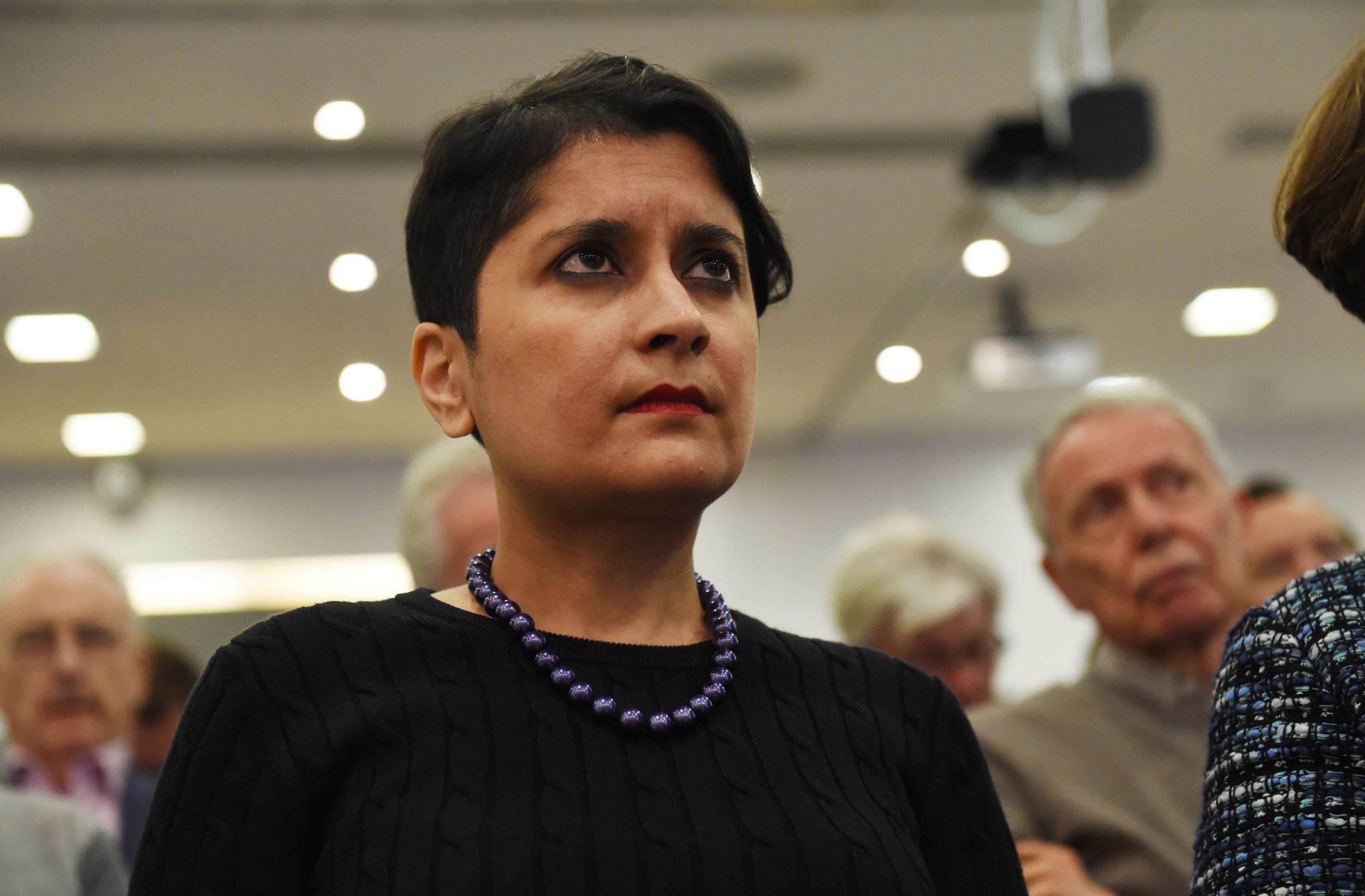Shami Chakrabarti was once a fierce defender of the people – now she’s just the chief protector of Brexit
Questioned on a people's vote on Radio 4, she sounded weak and evasive, unable to address the chasm between her Labour members' support for a people's vote and her leader’s resistance to it

Your support helps us to tell the story
From reproductive rights to climate change to Big Tech, The Independent is on the ground when the story is developing. Whether it's investigating the financials of Elon Musk's pro-Trump PAC or producing our latest documentary, 'The A Word', which shines a light on the American women fighting for reproductive rights, we know how important it is to parse out the facts from the messaging.
At such a critical moment in US history, we need reporters on the ground. Your donation allows us to keep sending journalists to speak to both sides of the story.
The Independent is trusted by Americans across the entire political spectrum. And unlike many other quality news outlets, we choose not to lock Americans out of our reporting and analysis with paywalls. We believe quality journalism should be available to everyone, paid for by those who can afford it.
Your support makes all the difference.Politics needs its heroes.
In the confusion and mess of political life, they are the women and men who serve as beacons of principle and clarity by whom we can navigate complex debates and who can inspire and recalibrate our political discussions.
As a left-leaning liberal, many of mine might raise an eyebrow or two, and so perhaps they are best not disclosed right now for fear of being misunderstood. One, though, that I think will resonate with liberals of all persuasions, is – or rather was – Shami Chakrabarti.
Described as “an anarchist in a barrister’s wig” by Loaded magazine and “the most dangerous woman in Britain” by The Sun, she inspired those of us horrified by a Labour government’s willingness to use fear of terrorism to attempt to intimidate parliament and the public. She described laws that trampled on legal and civil rights and advanced the case for ID cards and intrusive state surveillance as playing into the hands of our enemies.
In offering a clarion call to those of a liberal mind to stand up to politicians whose motivations always seemed to be the next election, she put the interests of those affected by the issues she spoke out on ahead of those of any particular party. As someone whose years in Westminster’s confines had jaded me to Question Time and Any Questions, knowing she would be appearing would cause me to tune in. She was unpredictable, fierce and funny.
Now, as shadow attorney general, she is none of those things. A decade on and mired in Brexit, that principle and clarity seem gone.
On Radio 4’s Today programme this morning, questioned on a further referendum, she sounded weak and evasive, unable to address directly the contradiction between her party membership’s overwhelming support for a further referendum and her leader’s wilful resistance to it in his discussions with Theresa May. Instead of challenging leadership, as she has in the past, she offered a bland apology of an explanation, that another referendum is merely a device to deal with deadlock.
Of my many friends in Labour who support a people’s vote, none do so simply to break the deadlock. There is a deep and genuine belief that Brexit will be very damaging for their children, for the communities they work in and represent, and for the country at large.
Across party lines, we are recognising that the country voted for departure in 2016 with a list of fantasy destinations. It did so for myriad different reasons. Now, after three years, as the cold, harsh reality of the Brexit arrival points become clearer – a rule taker with no influence, or no deal – we should confirm that this is a journey people still wish to make. They may say yes, they may say no, but it is a decision of such importance it should be their choice.
The Chakrabarti I wanted to hear on the radio this morning is the one that could articulate the feelings of hundreds of thousands of Labour members, who believe Brexit would be dangerous and unpredictable, and demand our political leaders trust the people to end the process they began.
F. Scott Fitzgerald wrote the following in one of his notebooks: “Show me a hero and I’ll write you a tragedy.” I can’t think of better words to encapsulate the way I feel about Chakrabarti.
Ben Williams is a former special adviser in the coalition government's whips' office and a former chief of staff to the leader of the Liberal Democrats. He writes now in a personal capacity
Join our commenting forum
Join thought-provoking conversations, follow other Independent readers and see their replies
Comments